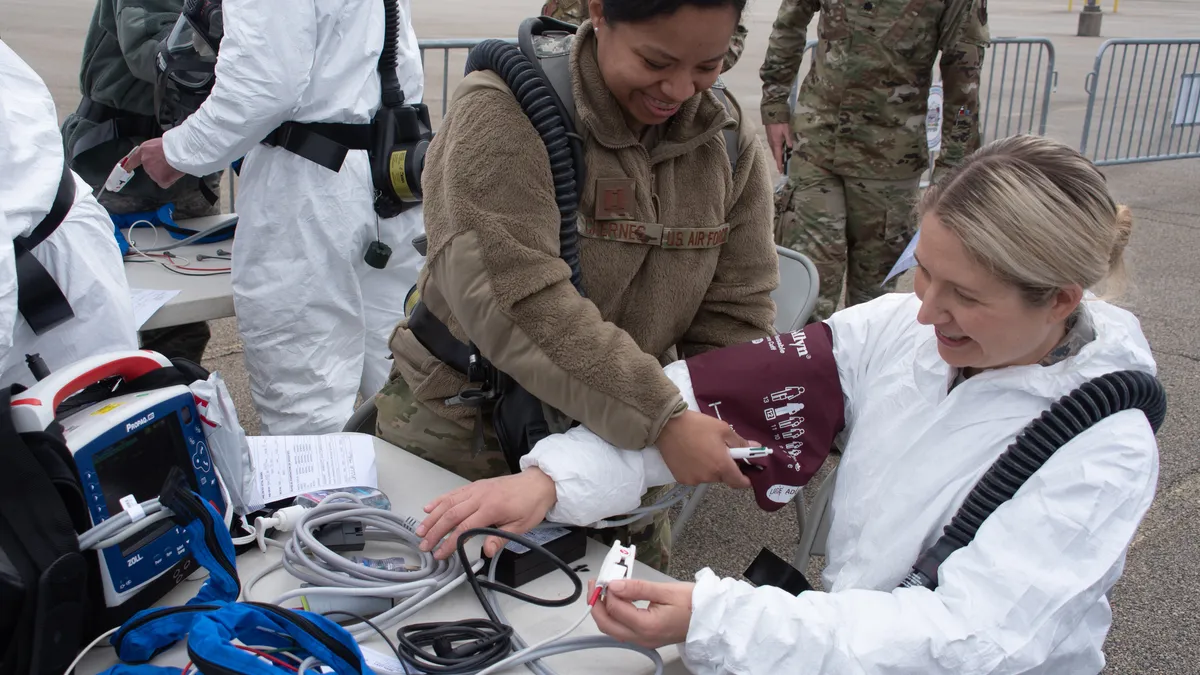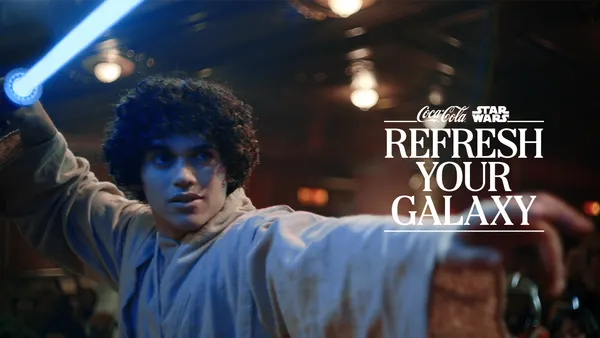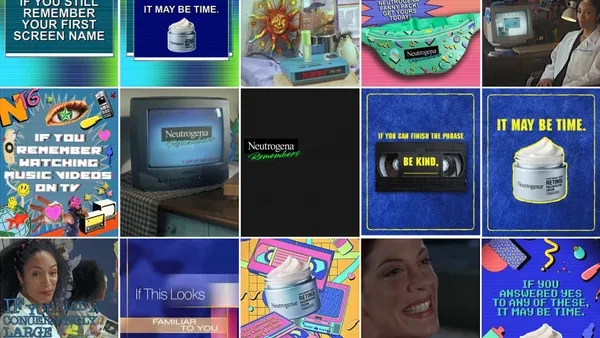UPDATE: May 14, 2020: This story has been updated to include comments from PepsiCo Beverages North America CMO Greg Lyons.
Dive Brief:
- PepsiCo today released results of a new survey that found empathy is growing among American consumers during the coronavirus pandemic, and that brands have a role to play in amplifying the sentiment. The findings shared with Marketing Dive suggest companies will need to not only evolve their consumer-facing communications around empathy, but also their support for workers, other businesses and the community at large.
- The longitudinal study conducted with Ipsos found that four in five respondents believe empathy has become more important in light of the public health crisis. Prior to the pandemic, 43% of Americans described the nation as empathetic, but that figure has since risen seven percentage points. Nearly all (94%) Americans say that empathy is important, generally.
- Over half (56%) of those surveyed said that brands using their marketing to address the pandemic is an act of empathy. The top five ways consumers say brands can be empathetic are: treating people with respect (52%), treating people like human beings (50%), listening to people (43%), caring about people (41%) and acknowledging when the brand is wrong (37%). However, the most valued form of brand empathy identified by PepsiCo was responding to workers and the community first.
Dive Insight:
PepsiCo's research with Ipsos keys into what could become a significant new trend for marketers — one that will require some to retool both their brand communications strategies and broader corporate practices. The insights are another indication that consumers are putting more stock in companies that offer a holistic response to the coronavirus that steps beyond one-off campaigns to instead touch on areas like community support and worker health and safety.
"I'm a firm believer that empathy has become the new brand mandate, especially in light of this pandemic. Our research shows the need to focus on the collective," Greg Lyons, CMO of PepsiCo Beverages North America, said in a statement to Marketing Dive.
"This collective tragedy is difficult in many ways, but it is forcing progress in how we relate to each other as humans," Lyons added. "The most important thing we can do as marketing organizations is lead through action, supporting our people — employees, the community and consumers."
Failing to meet these higher expectations could potentially damage brands, as 86% of respondents agreed that it's "critical" for brands to show empathy now if they want to grow loyalty. Two in three consumers also noted that brands' actions during the pandemic will influence how they engage with those brands in the future.
"In this environment, it is just as easy for brands to get it right or wrong, and either way will leave a deep and lasting impression on consumers," the research reads, adding that brand empathy will be a new "imperative" for the marketing industry moving forward.
On the communications front, the pandemic and its impact on empathy seems to have shifted the types of messaging that resonates most with consumers. During the crisis, Americans are responding less to overly emotive, serious or humorous marketing, and instead are favoring brands that offer support, hope and comfort during a tough period, the study found.
Among those surveyed, 86% said it's important for brands to help lift spirits, 74% said it's important for brands to create a moment of escapism and 73% said it's important for brands to offer an outlet for entertainment. PepsiCo and Ipsos polled more than 5,000 Americans aged 16 and older for the research over two periods: 3,118 from March 10-13 and 2,084 from May 1-5. The initiative started prior to the pandemic, but was rerun to better understand how perceptions of empathy changed.
Other studies have noted that many people are tiring of repetitive campaigns around COVID-19, and increasingly want to hear from essential services, including doctors, in their advertising. Yet, preferences do appear to vary by demographic group. Gen Z consumers, for example, want to see more fun and exciting advertising to help them break up the boredom of a prolonged period of social isolation, according to a recent survey by Magid.
While marketers are used to adjusting their messaging to meet consumer demands on the fly, the PepsiCo study also highlights a newer, potentially thornier area to wade into. Consumers are increasingly putting a premium on worker and community support, as those on the frontlines of the pandemic fight harder for hazard pay and safety protections.
PepsiCo revealed that 93% of those surveyed want brands to provide salary and sick leave to employees, and 90% want transparency into how businesses are keeping their workers safe. Additionally, 91% want to see brands manufacture essential resources and help struggling local businesses, while 90% want to see brands give back to those in need.
A desire among consumers for brands to safeguard workers comes as companies from Amazon to Tyson Foods come under fire for their treatment of employees amid the pandemic. Earlier this month, Tim Bray, a senior engineer at Amazon, resigned "in dismay" after the e-commerce giant fired several employees who criticized the company's practices, including allegedly not providing warehouse workers enough protection. Amazon upholds that the terminated employees were violating existing policies.
Perhaps with this research in mind, PepsiCo this month launched a campaign called "Stronger Together" to celebrate essential workers during the pandemic, highlighting frontline workers in some Southeastern states by sharing their stories during the public health crisis.













